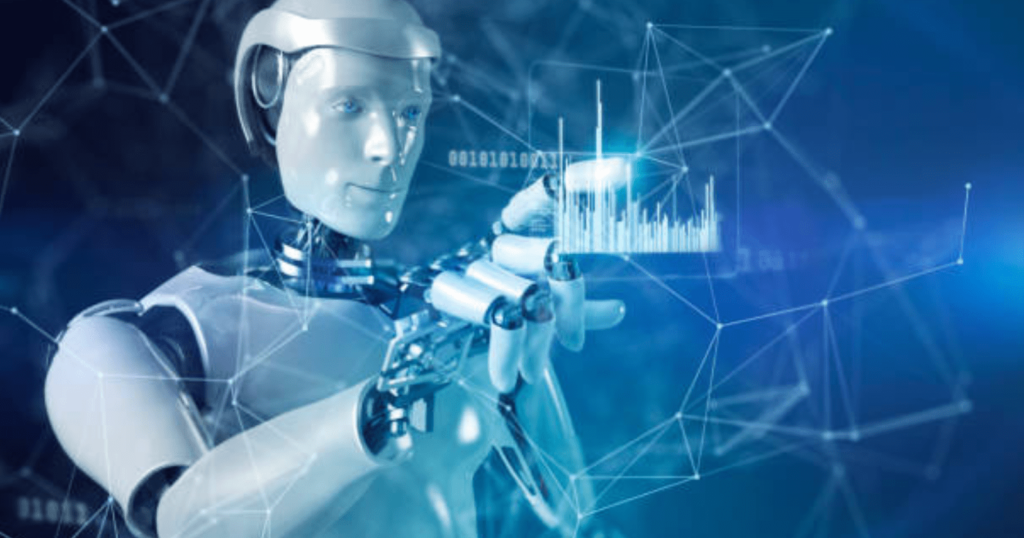Can machine learning be used for automation: Envision a future in which laborious chores, such as email sorting and production line optimisation, are handled automatically. That’s the power of automation, and its machine learning (ML)! But just how do these two heavyweights of technology collaborate?
Can machine learning be used for automation
Let’s Dissect It:
- Consider automation as putting a machine on autopilot. When you give it instructions, it always and flawlessly complies with them. Excellent for routine work, but not so great for changing with the times.
- Think of machine learning as a computer programme that learns more and more with usage. It can learn to see patterns and formulate predictions by examining data. It can now handle scenarios outside of its original code thanks to this.
Automation and Machine Learning Are the Ideal Combination
This is where the fun begins. There are many important ways in which automation may be enhanced by machine learning:

- Learning from Experience: Over time, an automated system driven by machine learning (ML) may enhance its performance by analysing historical data. Envision an automated limb that gains precision with every movement, assimilating knowledge from its errors throughout production.
- Managing Complexity: Compared to classical automation, machine learning can handle jobs with more variables. To keep your mailbox secure, an ML-powered spam filter, for instance, may be trained to recognise novel phishing techniques.
- Adapting to Change: Automation driven by machine learning is capable of handling unexpected events. When fresh items are delivered to a warehouse, an ML system may modify its sorting criteria to make sure everything ends up in the proper spot.
How is AI ML used in test automation?
Have you ever wondered how those amazing applications you use came to be that way? Testing is no longer limited to hand labour. Software testing is becoming quicker, smarter, and more efficient thanks to the dynamic combo of artificial intelligence (AI) and machine learning (ML). This tech tag team approaches the domain of test automation as follows:
The Pain of Manual Testing: Is It Going to End?
Envision an endless cycle of selecting options, completing forms, and scanning for errors. That is how test automation is traditionally done: it is laborious and prone to human mistake. AI and ML enter the picture to cause chaos!
- AI: The Mastermind Strategist: This technology examines your programme to determine which parts need the most testing. Consider it a knowledgeable guide that directs testers to possible issue areas.
- Machine learning, often known as “The Speedy Learner: Improves with practice. Machine learning (ML) may be used to automatically develop new test cases that cover a larger variety of situations without requiring human interaction by analysing historical test data.
Above and Beyond: The AI & ML Toolkit
Here are a few amazing things that AI and ML can do with test automation:
- Create Test Cases Wisely: Don’t write test scripts with limitless lines! AI is capable of identifying trends in user behaviour and producing relevant test cases on its own, simulating how actual users might interact with the programme.
- Self-Healing Tests: When software is updated, tests may malfunction. However, test scripts may become self-healing with AI and ML! They may get used to little adjustments, which will maintain the automation process’ efficiency.
- AI is more advanced than text comparisons when it comes to visual validation on steroids: Envision your app’s AI being able to distinguish even the smallest visual differences across versions a consistent and aesthetically beautiful user experience.
- Predictive Testing – Similar to a Fortune Teller Fighting Bugs! AI and ML can forecast regions where problems are likely to appear by examining historical data. This enables testers to concentrate their efforts on averting issues before they arise.
Does RPA use machine learning
- Imagine a selfless helper who is very good at following directions but finds it difficult to pick up new skills. That is the essence of robotic process automation, or RPA. RPA precisely automates activities, yet it is not flexible enough to modify. On the other hand, machine learning (ML) functions similarly to a quick learner. It is capable of data analysis, continuous improvement, and even demand prediction. When these two technologies are combined, magic occurs. RPA takes on the role of the dependable worker bee, while ML gives it intelligence to provide a more intelligent and flexible automation solution.
